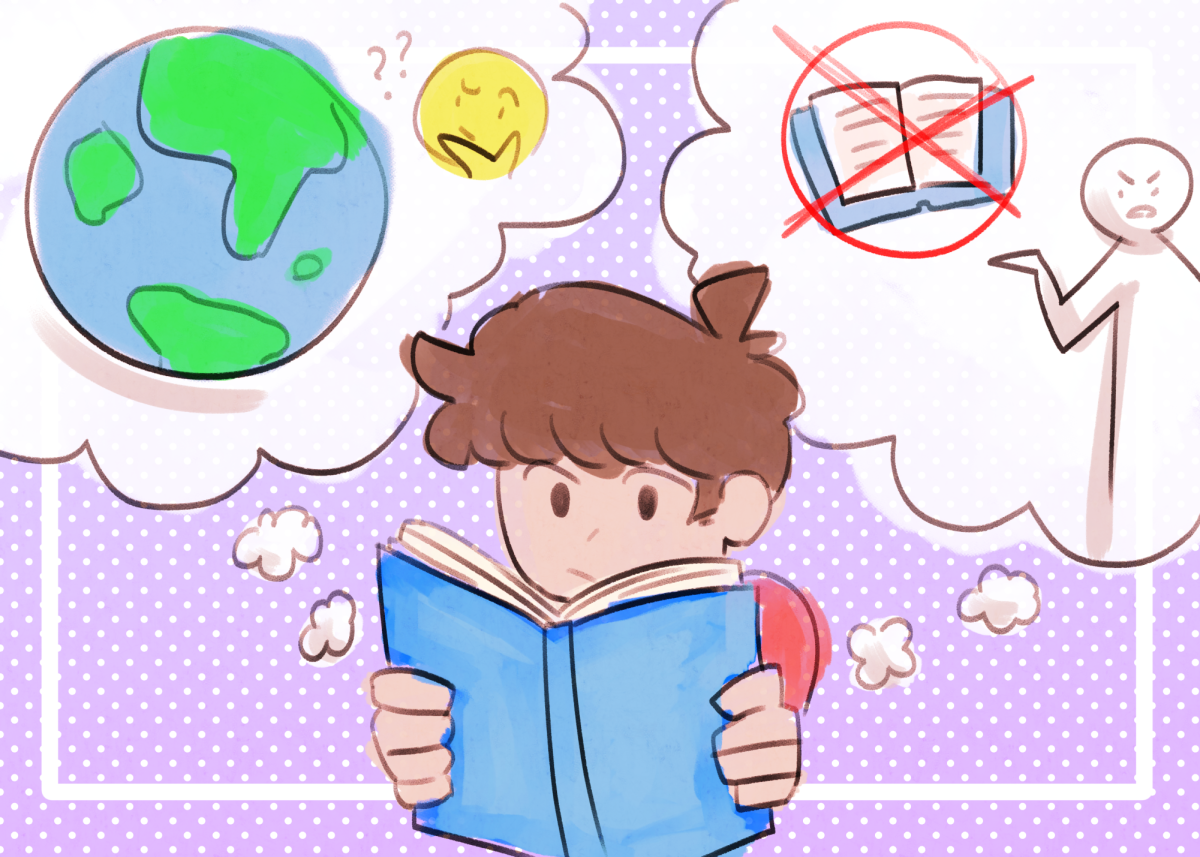“The Adventures of Huckleberry Finn” and “The Handmaid’s Tale,” classics taught at Northwood, are adored by students. However, the literary merit of these novels is plagued by the ongoing controversy surrounding them as they are commonly banned. Banning books in a misguided attempt to censor controversial ideas deprives readers from experiencing diverse points of view and new ideas that challenge the status quo.
CNN reported an increase of 60% of book bans in 2022, and the American Library Association noted a surge of 65% in 2023. According to CNN, books depicting LGBTQ issues and lifestyles are the most likely to be banned, although books about race and gender have also been targeted. Overwhelmingly, bans are used to marginalize communities that already face discrimination.
”It’s such an easy target for those who are riding the wave of political fervor,” English teacher Phil Roh said. “Whatever seems to be ‘of’ that time period is blamed, whether that be race, sexuality or another aspect of identity.”
Being “of” a time period happens to be the most fascinating story a book has to offer. The representation of historical or controversial opinions can inform readers of both sides of the political and cultural context it was written in.
There’s no better way for students to confront these topics than head on. Reclaiming banned books can bring value to experiences of others who do not fit the mainstream narrative.
“Books give you access to someone else’s thoughts and give you empathy for what other people are dealing with,” English teacher Angela Allen said. “Any time we cut off information from a student, that is always detrimental.”
Classrooms are the perfect place to explore new perspectives and find a deeper meaning in reading. Even in older books like those that are taught at Northwood, there is merit to engage students in critical thinking, which is why these stories were included in English curriculums to begin with.
“It communicates a distrust of teachers and educators to say we cannot teach this book because we don’t have the judgment to identify what students need,” Roh said. “Is [school] a daycare center or is it an opportunity to equip people so they may engage in a world that is greater than them?”
Students can participate in efforts to reclaim books by advocating for their education. The American Library Association recommends writing letters to local newspapers and communicating with your public library director to learn more about the freedom to read.
In a culture that constantly changes, the only constant is controversy. When a book is banned, you should make an effort to read it; something in it sparked a scary idea to someone in power. Read it and judge its worth for yourself.



![AAAAAND ANOTHER THING: [CENSORED] [REDACTED] [BABY SCREAMING] [SIRENS] [SILENCE].](https://thehowleronline.org/wp-content/uploads/2025/06/lucy-1200x800.jpg)

















































